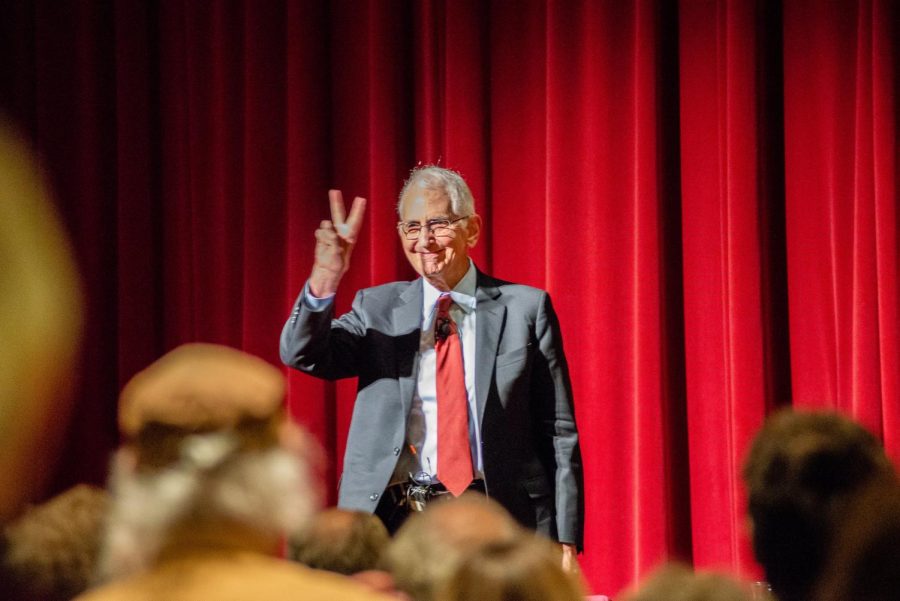On June 13, 1971, the New York Times ran front page coverage of Tricia Nixon’s wedding day. Three columns over and far less attention-grabbing, another story — “Vietnam Archive: Pentagon Study Traces 3 Decades of Growing U.S. Involvement.”
“Most of the study and many of the appended documents have been obtained by The New York Times and will be described and presented in a series of articles beginning today,” it read. The source of the now-infamous Pentagon Papers? Former RAND Corp. researcher and adviser to Assistant Secretary of Defense John McNaughton, Daniel Ellsberg.
At great personal risk, Ellsberg spent months secretly copying and sharing the documents with members of Congress, and later, Times reporter Neil Sheehan. The Pentagon Papers detailed decades of U.S. deception in the Vietnam War, and their release sparked a years-long legal battle over the First Amendment, prior restraint and the fate of Ellsberg himself.
Aside from his role as a whistleblower, Ellsberg is notable for his “hawk to dove” transformation on Vietnam policy, from a nuclear war analyst to a staunch anti-war advocate. It’s a testament of open mindedness at the highest level — a willingness to take in new facts and experiences and shift your beliefs accordingly.
On March 2, 91-year-old Ellsberg announced his diagnosis of inoperable pancreatic cancer.
“When I copied the Pentagon Papers in 1969, I had every reason to think I would be spending the rest of my life behind bars. It was a fate I would gladly have accepted if it meant hastening the end of the Vietnam War, unlikely as that seemed (and was),” he wrote in a statement, adding that he spent the following years advocating against the war. “As I look back on the last sixty years of my life, I think there is no greater cause to which I could have dedicated my efforts.”
As Ellsberg reflects on his decades of political activism, his legacy will surely be protected and shared with future generations at the University of Massachusetts. UMass acquired Ellsberg’s papers in 2019, an institution he described as “dedicated to the values of openness, equity and social justice.”
“In my years of service, both inside government and out, I have always firmly believed that truth-telling to the American public is an expression of the loyalty owed to the Constitution, the rule of law and the sovereign public. It is a patriotic and effective way to serve our country. Sharing these papers with future generations through the archives at UMass Amherst is reflective of that deeply held philosophy,” Ellsberg said.
Following the acquisition, Ellsberg archivist Jeremy Smith sorted through 500 boxes of documents and personal items, which were unprocessed and spanned decades. The result: The Ellsberg Archive Project — a year-long seminar, online conference and podcast series in partnership with The GroundTruth Project.
At the 2021 conference commemorating the 50th anniversary of the release of the Pentagon Papers, students in UMass history Professor Christian Appy’s seminar reflected on Ellsberg’s legacy and their experiences working with the archive. “It is inspirational to go through these boxes because there is a lack of hope for young people,” political science major Grace Simmons said. “Being in this course and all its discussion has kind of reinvigorated hope within me that we can make a change.”
Recordings of the conference, including panels about nuclear weapons and the anti-war movement and Watergate, are available for free online.
In January 2023, the University recognized Ellsberg by awarding him an honorary degree in a ceremony near his home in San Francisco. “We honor you for a lifetime of truth-telling that demonstrates how dissent can be the highest form of patriotism and citizenship. We thank you for inspiring others to follow your example,” Chancellor Kumble Subbaswamy told Ellsberg.
With more than a half-century of activist work to follow, Ellsberg’s example will leave a lasting legacy here at UMass.
Catherine Hurley can be reached at [email protected] and followed on Twitter @cath_hurley.




















